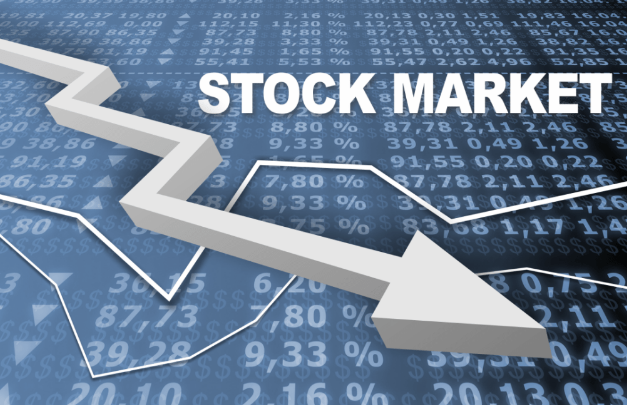What to know about the stock market

Understanding the stock market and how to make money form the market takes time and commitment, it is not what is achievable on a short time basis.
Before learning how to use the stock market, one need to first understand, what stock market really is?
What is stock market?
A stock market could also be called equity market or share market, is the aggregation of buyers and sellers of stocks also called shares, which represent ownership claims on business entities.
These ownership rights may include ownership of securities listed on a public stock exchange, like the Nigerian Stock Exchange (NSE) as well as those not listed or traded over the counter (OTC) or traded privately.
Stock exchanges list shares of common equity as well as other security types, e.g. federal government bonds, Exchange traded funds (ETF), derivatives, corporate bonds, convertible bonds, features, options.
While shares, government bonds, corporate bonds derivatives are currently traded on the Nigerian Stock exchange, features and options are yet to be introduced by the exchange.
Getting Stock market information
Market information could be accessed through the TV news, newspapers, the internet, radio or directly from professional stock brokers.
Market terms like, “The NSE ASI closed high. “The Dow Jones closed at record highs”; “The S&P 500 is trading down two-tenths of one percent”; “The stock market is reacting to news from Washington: The stock market is reacting to news from Abuja”
The stock market seems to be everywhere in our daily lives, but what exactly is the stock market? And, what are stocks that are bought and sold on this market? What does it mean for you, for your employer, or for the country’s economy when the stock market had “a good day”?
Your rights as a shareholder’s
According to Investopedia, getting answers to market questions are not always obvious once one begins to think about what stocks are. For example, you may have heard that owning stock means that you become an owner of that company.
But what does that mean? As an “owner” can you rightfully walk into one of its offices and take home a chair or a desk? Can you hire and fire people?
As a shareholder, Voting Power on Major Issues, Ownership in a Portion of the Company, The Right to Transfer Ownership, An Entitlement to Dividends, Opportunity to Inspect Corporate Books and Records, The Right to Sue for Wrongful Acts and insisting compliance with Corporate Governance.
Top Nigerian companies listed on the stock Exchange
The stock market is known as an institution that grows wealth or for savings. It has never been a casino, but a medium for savings through buying of shares in listed companies and expecting to benefit form their profit sharing.
However, when listed companies make loss, the shareholders also benefit from the loss by not receiving dividend hence loss making companies don’t pay dividend.
Some of the top companies listed on the Nigerian Stock Exchange (NSE) that provide ample opportunities for people to buy their shares and expect good returns are , NESTLE Nigeria Plc, Zenith Bank, FBN Holdings, GTBank, Dangote Cement , UBA,Lafarge Africa amongst others.
Majority and minority shareholder
Of course, if you only own a small number of shares, you only “own” a small percentage of the company, but what if you own a majority of the shares, could you then take home a chair or fire workers?
Once you’ve come to grasp these concepts and understand what makes the stock market tick, the hope is that you’ll become a smarter, more informed, and savvy investor. E
ven if you don’t have a brokerage account of your own and invest with your own money, you may very well be exposed to stocks via your retirement account, pension plan, college savings plans, health savings plans, or insurance policies.
Stock market, once a tool for the rich
Once a tool for the rich, the stock market has now turned into the vehicle of choice for growing wealth for many segments of the population.
Advances in trading technology and low-cost brokerage services on the internet have opened up stock markets so that today nearly anybody can own stocks with the click of a mouse.
Considerations for stock purchase
That means you have a reason to believe the factory needs to be expanded, or that you understand broadly the type of research being done and what the payoff might be, or that you understand and believe in the business plan of the new venture.
In other words, investing is a rational decision made with an eye to the future. When you invest, your money is intended to be put to work increasing value.
Need for stockbroker
The dealing member of the Nigerian Stock exchange, or stockbroker is licensed to trade on the platforms of the NSE and render financial advisory services, however there are also unlicensed brokers who are not reliable and could be dubious, so caution must be taken in choosing a stock broker.
The stock broker’s job is to manage the financial portfolio of your client; so this could be an individual or a company. On the advice of investment analysts, the stockbroker stands a as the investor’s agent and charges commission for his services depending on the volume of transaction or counselling services rendered.
The stock broker discusses with you as the client which shares to buy or sell in order to get the best returns on the transaction.
Before proceeding
However, it is important to distinguish between two common uses of the stock market: investing and speculation. Investing is when you hand over your money so that it is put to use for productive projects such as growth or expansion.
It is worthy to know that investing in a factory, in research and development, in a new business idea – these are all done with the expectation that in the future, the factory, the research, or the startup will be worth more than the original investment.
Speculation
Speculative share purchase or investing, on the other hand, is akin to gambling. Speculators purchase something with the hope that they can soon sell it at a higher price, but without necessarily understanding, or even caring about why the price should go up.
Sometimes, speculators have an intuitive feeling, or are trading on rumor, but ultimately they do not concern themselves with the factory, the R&D, or the business plan. Speculation should not always be viewed as a bad thing, however; speculators add liquidity to markets, and many have done very well for themselves.
Losing or gaining via speculation
At the same time, many smart investors have lost their fortunes in the stock market through speculation. The important distinction between investors and speculators is not a normative one, but rather that investors are generally more interested in the processes underlying prices; they are in it for the long haul, while speculators are more interested in the price itself, and with shorter time horizons for making money.
Dividend payment
Dividends are now paid electronically against the previous tradition when dividend cheques are issued and in most cases they get stale and needed revalidation.
Now, the Securities and Exchange Commission (SEC0 has enabled easy market operations through electronic dividend or e-dividend.
Electronic payment network such as the Nigerian Interbank Settlement Systems (NIBSS) and the registrar facilitate the processing and payment of shareholders dividends and interest on Bonds, Shares and other investment through the Automated Clearing House.
Benefits of e-Dividend
It is expected that the e-dividend would: Eliminate/minimize cases of unclaimed dividends through direct credit of dividends into shareholders accounts.
Minimize zero tolerance of dividends loss in transit, Eliminate the forfeiture of dividends in the future.
E-DIVIDEND also avoid incidence of unclaimed dividend and to enhance ability of shareholders to immediately access and utilize the proceeds of their investments.








